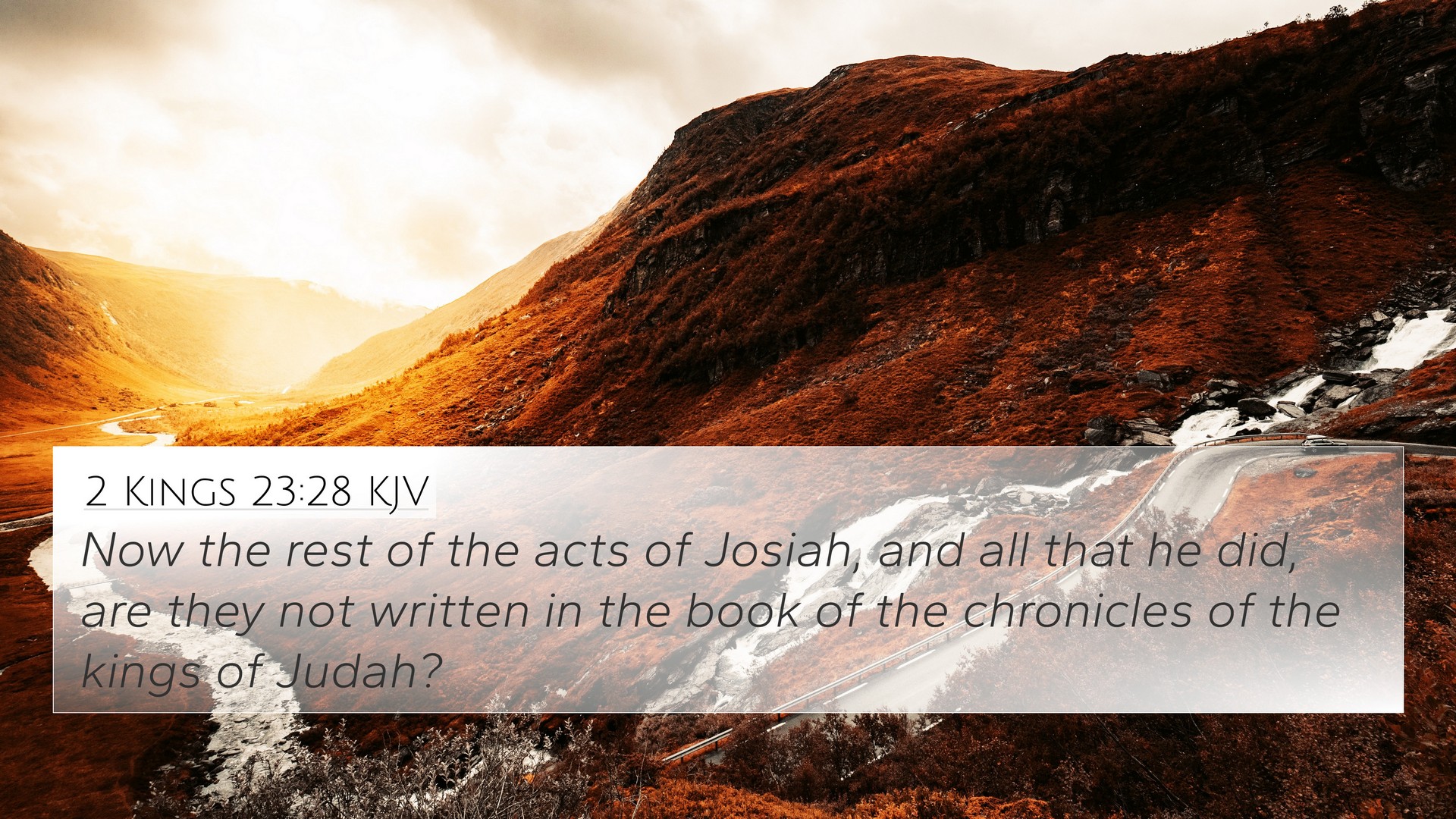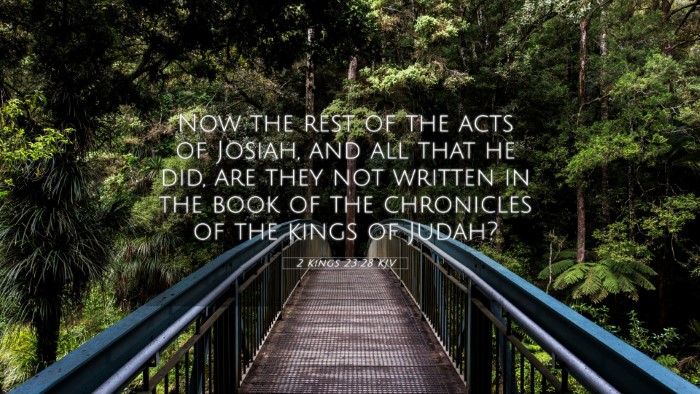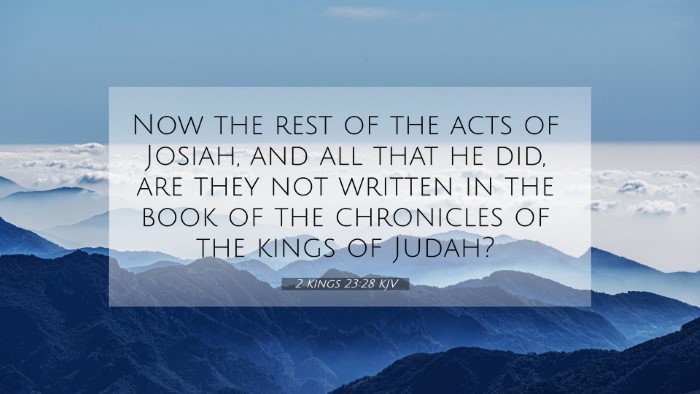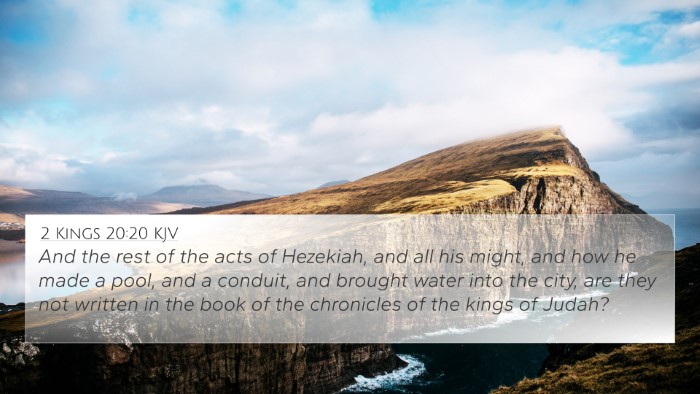2 Kings 23:28 states, "Now the rest of the acts of Josiah, and all that he did, are they not written in the book of the chronicles of the kings of Judah?" This verse serves as a closing comment on the reign of King Josiah, highlighting the significance of his actions and the historical documentation of his reign.
The verse encapsulates the end of Josiah's reforms and his dedication to restoring true worship in Judah, which aligns with the overarching themes seen in the Old Testament regarding righteousness and divine favor.
Meaning and Insights
-
Historical Context: According to Matthew Henry, this passage reflects the extensive reforms instituted by Josiah, marking a transformative period in Judean history.
-
Spiritual Significance: Albert Barnes emphasizes Josiah’s faithfulness to the covenant and the drastic changes he made to align with God’s will, contrasting the preceding kings who often led Israel astray.
-
Legacy of Josiah: Adam Clarke notes that the chronicling of Josiah's deeds serves as a testament to his righteousness and highlights that even amidst a declining nation, profound spiritual revival is possible.
Connections to Other Bible Verses
The verse draws connections with many other scripts in the Bible, creating a fabric of inter-Biblical dialogue to understand Josiah's role in the narrative of Judah:
- 2 Kings 22:1-2: Introduces King Josiah and describes his righteous reign.
- 2 Chronicles 34:29-33: Further details the actions of Josiah in the context of his reforms and covenant renewal.
- Deuteronomy 17:18-20: Reflects on the requirement of kings to be faithful to Yahweh’s laws.
- Jeremiah 1:1-3: Provides a prophetic framework during the reign of Josiah, denoting prophetic activity in his time.
- 2 Kings 21:24-26: Contrasts Josiah with his father, Manasseh, emphasizing the need for the reforms he initiated.
- Jeremiah 22:15-16: Commends the righteous king who cares for the poor and needy, akin to Josiah’s character.
- 2 Kings 23:4-5: Discusses Josiah’s reforms which lead to the purification of the temple and the eradication of false worship.
- 2 Kings 25:8-21: Shifts to the aftermath of Judah’s eventual fall, demonstrating the long-term impact of kings like Josiah.
- Luke 1:17: Indicates the coming of John the Baptist who would restore the hearts of the fathers to the children, resonating with Josiah's restoration efforts.
- Matthew 1:10: Mentions Josiah in the genealogy of Jesus, linking the righteous king to the lineage of the Messiah.
Thematic Analysis
This verse encapsulates key themes that resonate throughout the Old Testament. It brings to the forefront the importance of righteous leadership and faithful worship, showing how one king's dedication to Yahweh led to significant spiritual reform.
The notion of covenantal faithfulness is prevalent across the texts, as Josiah’s commitment to the Lord reinforces the necessity for spiritual renewal within the community. Josiah’s story serves as an encouragement for current and future generations, illustrating the possibility of redemption and the return to God amidst societal decay.
Cross-Referencing Insights
The process of examining Bible verse cross-references is crucial for gaining a fuller understanding of this and other scripture passages. By utilizing tools for Bible cross-referencing, one can identify theological links and thematic continuity across the Bible.
Engaging in comparative Bible verse analysis allows believers to draw deeper connections between the living faith represented in the text and their spiritual lives today. In analyzing verses like 2 Kings 23:28, one may consider how it relates to broader narratives in both the Old and New Testaments.
For instance, exploring how this verse connects with others such as Jeremiah 22:15-16 or Luke 1:17 can provide insight into the continuity of God’s revelation and the unfolding of the narrative that points to Christ.



